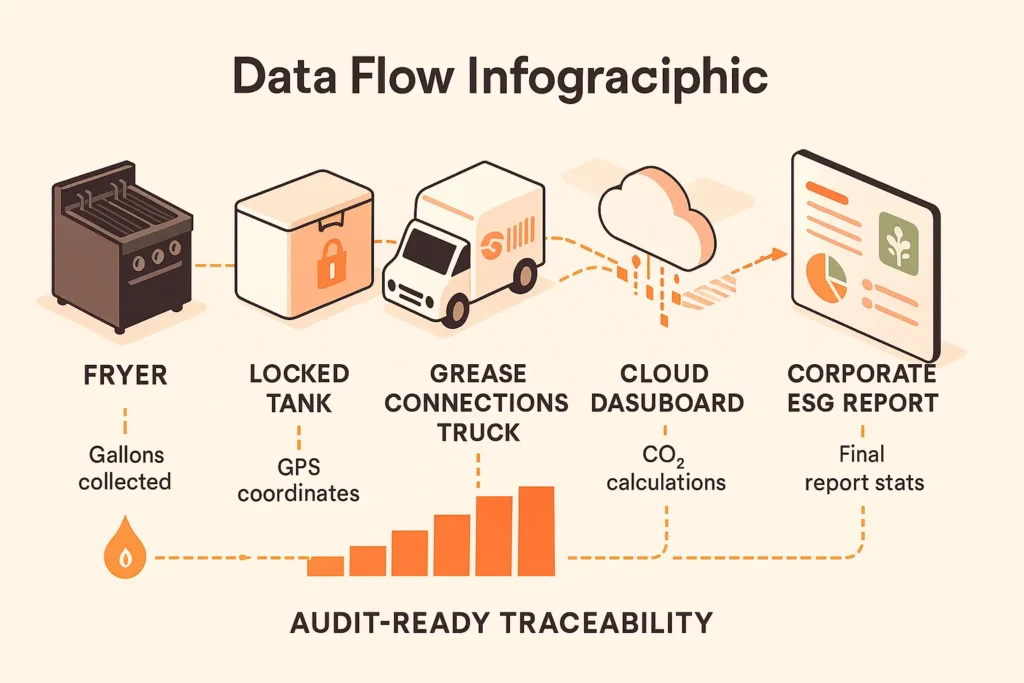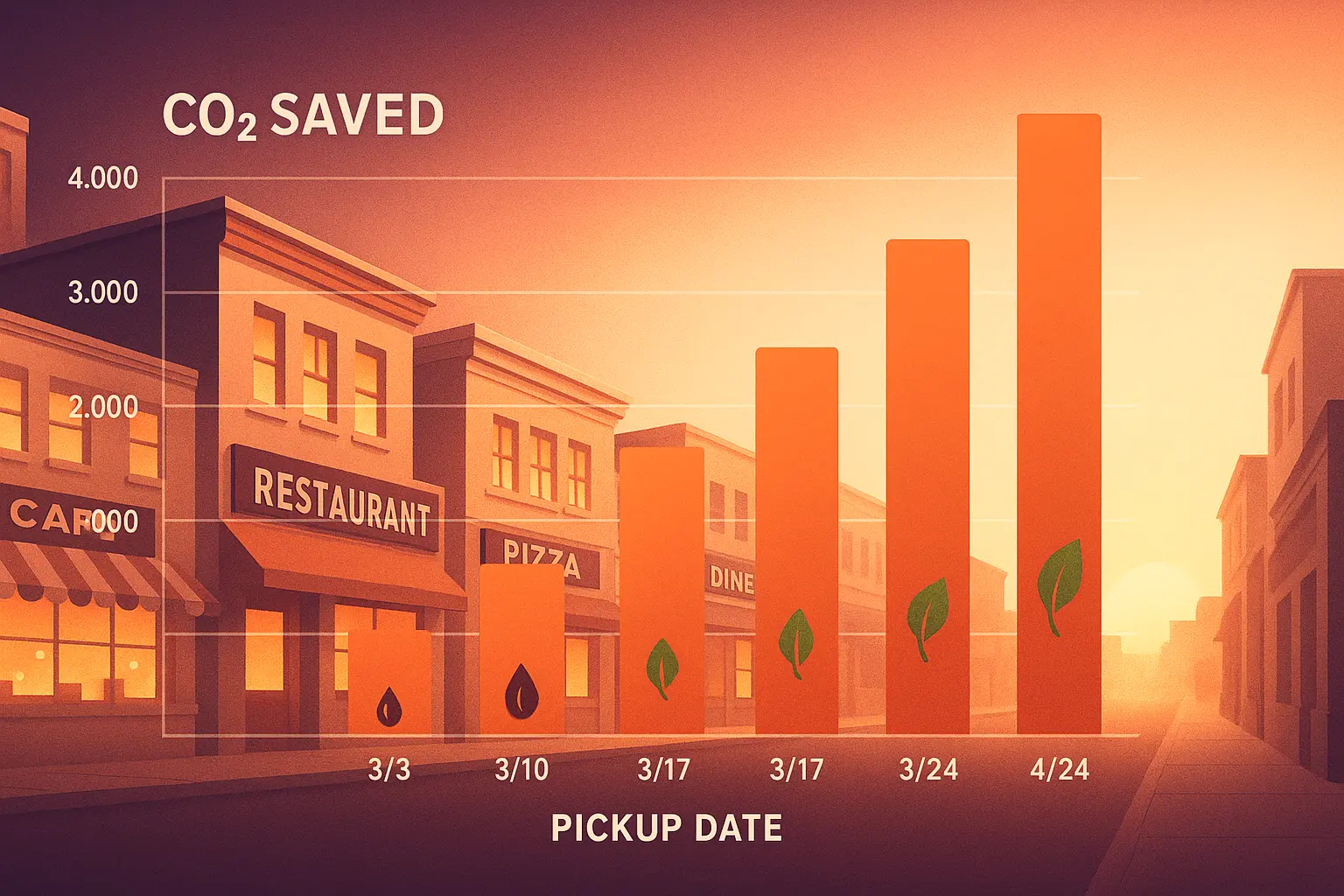Table of Contents
Why ESG Reporting on Recycled Oil Matters
Quarterly sustainability reports are no longer “nice to have.” The SEC’s 2024 climate risk rule now asks registrants to document material environmental impacts in clear, traceable data sets. Restaurants, food halls, and corporate kitchens that recycle oil already cut Scope 1 and Scope 3 emissions, but only if pickups are measured, verified, and shared in a defensible format.
Industry ESG studies show that a leading national recycler diverted 270 million lbs of oil in 2022 saving 62.5 million lbs of CO₂e because every gallon was barcode scanned into a dashboard. Grease Connections follows the same rigorous chain of custody, then layers in regional compliance codes for Florida, Georgia, and New Jersey so your sustainability office stays inspection ready.
What Corporate Sustainability Teams Look For
Procurement leaders tell us the first question from corporate HQ is “Can you prove the carbon math?” According to circular economy researchers, traceability software such as Circularise links each waste stream to a verified audit trail. Large recyclers publish annual sustainability reports that track gallons, GHG savings, water savings, and fuel outputs. Finance teams then roll those metrics into SEC filings or CSR portals. Grease Connections eliminates the manual spreadsheet chase by auto mapping every pickup to carbon equivalency factors that align with EPA WARM values, then exporting a quarterly PDF and machine readable CSV ready for your ESG platform.

Grease Connections’ Audit Ready Dashboard
Our in truck scanners record time stamp, GPS, and net gallons at pickup; the data streams into a dashboard that converts volume to avoided CO₂e, landfill diversion, and renewable fuel output using peer reviewed conversion rates. Each quarter you receive:
- A one page executive PDF with regional roll ups.
- A detailed CSV broken down by location for internal auditors.
- A compliance pack that maps our pickups to FL DEP, GA EPD, and NJ DEP FOG guidelines.
Vendor Checklist Ask These Questions Before You Sign
| ESG Reporting Must Have | Grease Connections | Typical Vendor* |
|---|---|---|
| Chain of custody scans | ✔ Barcode & GPS | Paper tickets |
| Quarterly ESG pack | ✔ PDF + CSV | Annual summary |
| Regional FOG alignment | ✔ FL, GA, NJ mapped | Generic |
| Scope 1 & 3 CO₂e factors | ✔ EPA WARM based | Not disclosed |
| AI ready data schema | ✔ JSON/CSV | N/A |
Regional Compliance Snapshot (FL, GA, NJ)
Florida requires used oil handlers to document storage and recycling routes to protect groundwater. Georgia’s EPD Rule 391 3 6 .24 governs FOG transport and demands labeled, leak proof containers. New Jersey’s food waste law treats used cooking oil as reportable material for large generators and ties it to local pretreatment audits. Grease Connections embeds these codes into our service agreements, so each pickup auto generates the manifests inspectors ask for. When your Miami, Atlanta, or Newark locations expand, the same data schema scales no new paperwork.
Getting Started: Three Simple Steps
Site Scan: We map fryer output and container footprint via a 15 minute video walk through; no downtime.
Live Dashboard in 48 Hours: After the first pickup, your ESG board sees carbon savings populate in real time.
Quarterly Review Call: We translate the numbers into story ready talking points for annual reports saving your team weeks. Industry case studies show that companies publishing clear ESG oil recycling data see a 12 % boost in investor perception scores. Ready to own your numbers? Check us out for same week setup.
Closing Note
Grease Connections turns fryer waste into verified ESG wins and hands you the data to prove it every quarter, every location.









